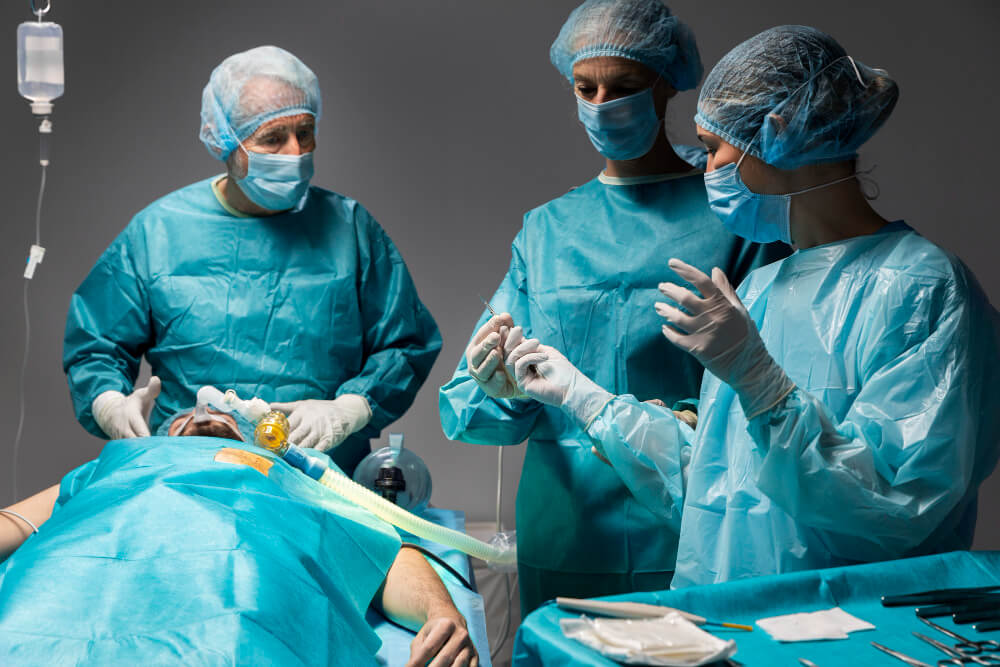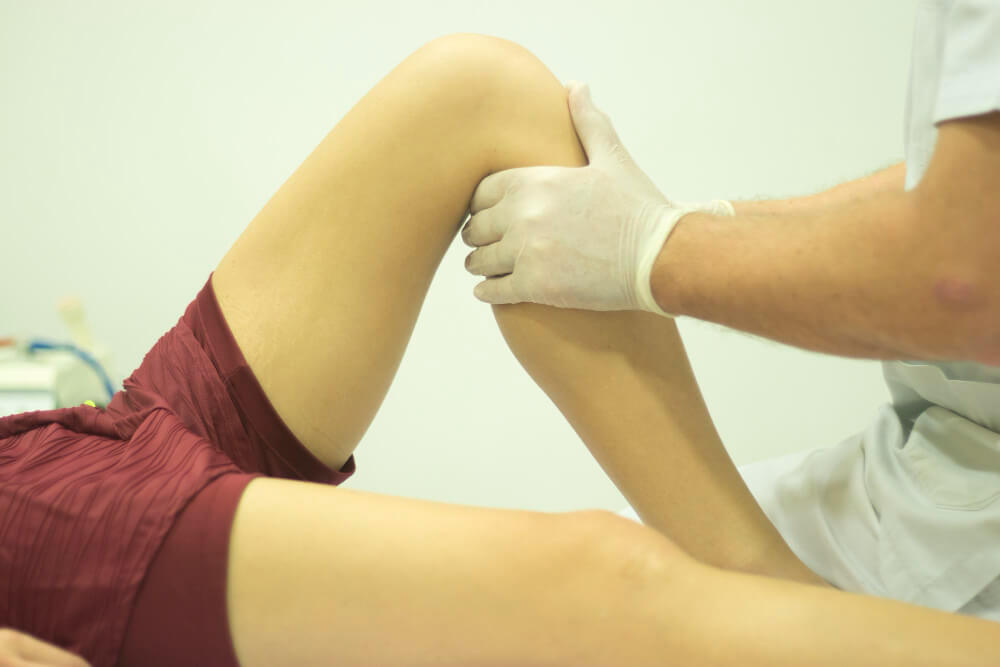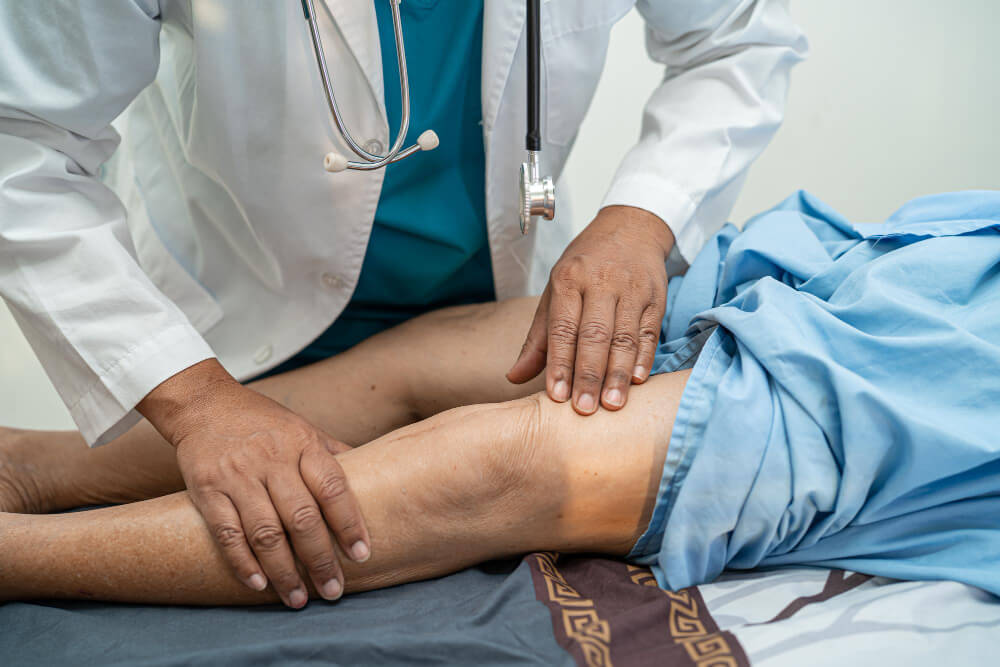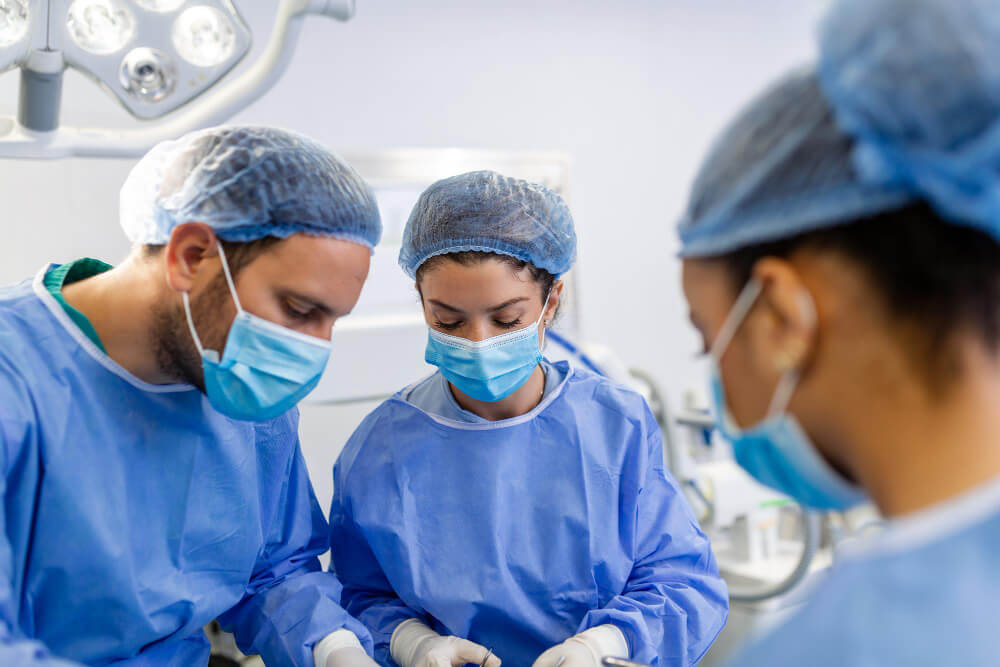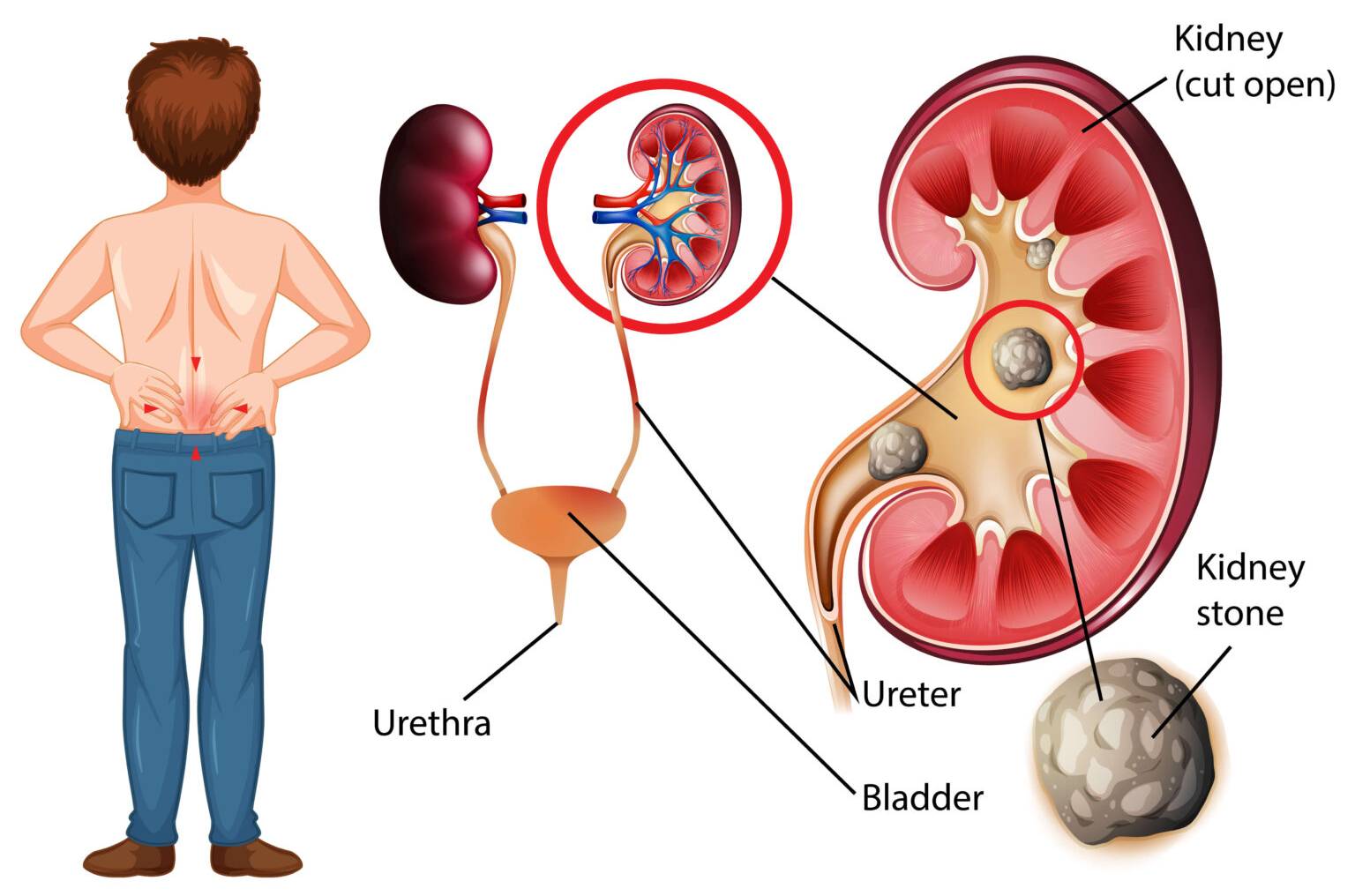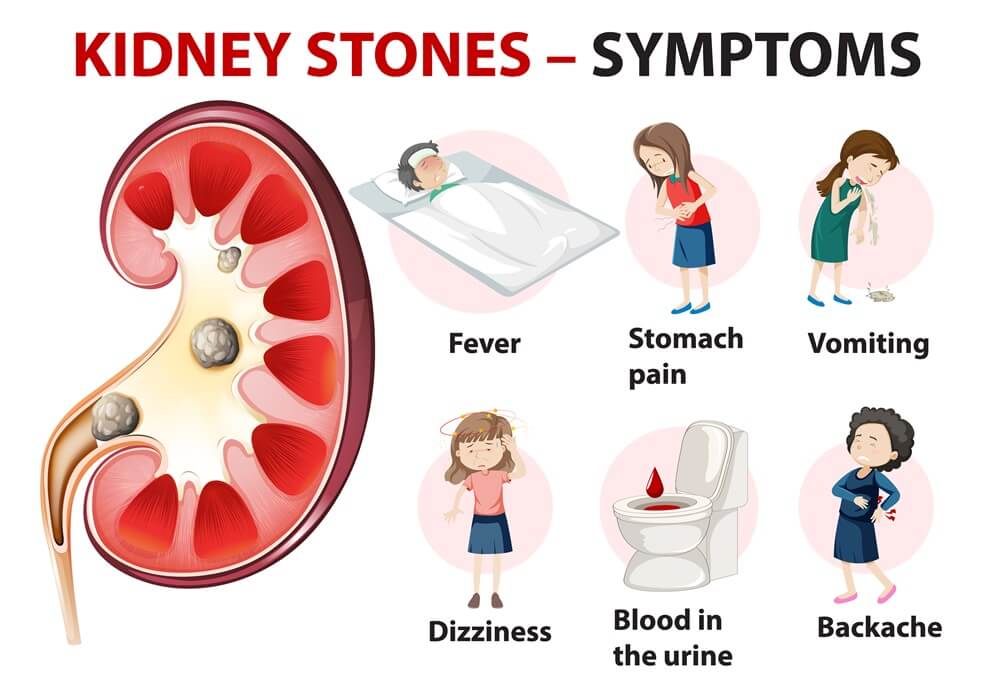Hernias are a common medical condition that affects many people worldwide. Despite the prevalence of hernias, there is still a lot of misinformation and myths surrounding the condition and its treatment. In this blog, we aim to debunk these myths and provide accurate information about laparoscopic hernia surgery, particularly in the context of Delhi. We’ll also highlight why laparoscopic surgery is often considered the better option, and we’ll address common questions and concerns about the procedure.

What is a Hernia?
A hernia happens when an organ or tissue protrudes through a weak area in the muscle or tissue wall. The most frequent types of hernias include inguinal (occurring in the inner groin), incisional (developing at the site of a previous surgical incision), femoral (found in the outer groin), umbilical (situated at the belly button), and hiatal (located in the upper stomach). Hernias can cause pain and discomfort, and they often require surgical intervention to prevent complications.
Why Does a Hernia Occur?
Hernias can occur due to a combination of muscle weakness and strain. Factors that can lead to muscle weakness include age, chronic coughing, damage from injury or surgery, and congenital defects present at birth. Straining activities like heavy lifting, constipation, persistent coughing, and pregnancy can increase the risk of developing a hernia. Understanding these causes helps in both preventing and identifying the condition early.
Common Perceptions About Hernias
Many people have misconceptions about hernias, which can affect their understanding and approach to treatment. Some common perceptions include:
- Hernias are always present with noticeable pain.
- Only men get hernias.
- Some people believe that hernias can resolve on their own without medical intervention.
- All hernias are caused by heavy lifting.
- Surgery is always dangerous and should be avoided if possible.
Myths and Misconceptions About Hernias Over the Years
Many myths surround hernias and their treatment. Let’s clarify some of the most prevalent misconceptions:
-
Myth 1: Only Men Get Hernias
-
-
- Both men and women can develop hernias, although some types, like inguinal hernias, are more common in men.
-
-
Myth 2: Hernias Can Heal Without Surgery
-
-
- Hernias do not heal on their own. Surgery is usually required to repair the hernia and prevent complications.
-
-
Myth 3: Hernia Surgery is Extremely Risky
-
-
- With advances in medical technology, hernia surgeries, especially laparoscopic ones, are relatively safe with high success rates.
-
-
Myth 4: All Hernia Surgeries Have a Long Recovery Time
-
-
- Laparoscopic hernia surgery is known for its accelerated recovery compared to traditional open procedures.
-
-
Myth 5: Hernias Are Always Painful
-
- Some hernias may not cause noticeable pain, especially in the early stages, which is why regular check-ups are important.
Traditional vs. Laparoscopic Hernia Surgery: Which is Better?
When it comes to hernia repair, patients often wonder whether to opt for traditional open surgery or laparoscopic surgery. Here’s a comparison:
| Feature | Traditional Open Surgery | Laparoscopic Hernia Surgery |
| Incision Size | Large incision | Small incisions |
| Recovery Time | Longer | Shorter |
| Scarring | More noticeable | Minimal |
| Pain | Higher postoperative pain | Less postoperative pain |
| Hospital Stay | Longer | Shorter |
| Cost | Generally lower | This can be higher due to equipment and expertise |
Benefits of Choosing Laparoscopic Hernia Surgery
Laparoscopic hernia surgery in Delhi is highly recommended due to its numerous benefits. Patients experience less postoperative pain, quicker recovery, and minimal scarring. Moreover, the best hernia surgeons in Delhi utilize advanced techniques and state-of-the-art equipment, ensuring a high success rate and patient satisfaction. The cost of hernia surgery in Delhi is also competitive, making it an accessible option for many.
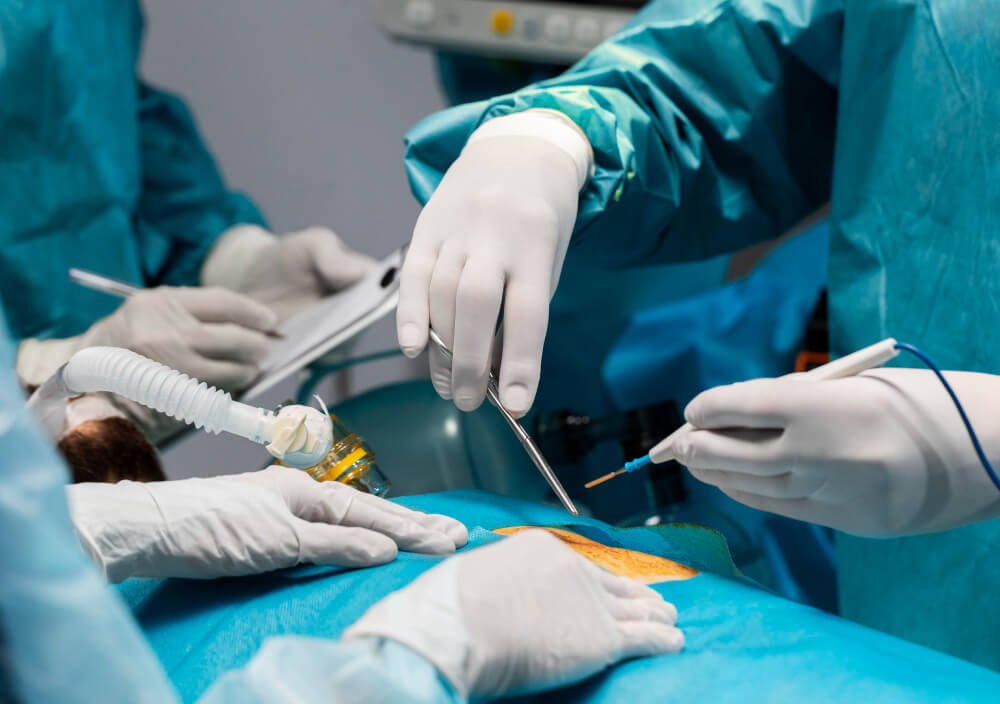
Choosing the Best Hernia Surgeon in Delhi
When considering hernia surgery, it’s crucial to choose an experienced and skilled surgeon. The best hernia surgeon in Delhi will have a proven track record of successful surgeries and a reputation for providing excellent patient care. Exploring various surgeons and consulting with them can significantly aid in making a well-informed decision.
Finding the Best Hospital for Hernia Surgery in Delhi
Selecting the right hospital is equally important. The best hospital for hernia surgery in Delhi will offer comprehensive care, including preoperative and postoperative services. Look for hospitals with high patient satisfaction rates, modern facilities, and a team of specialized healthcare professionals.
Understanding the Hernia Surgery Cost in Delhi
The cost of hernia surgery in Delhi can vary based on several factors, including the type of surgery, the surgeon’s expertise, and the hospital’s facilities. It’s important to get a detailed estimate and understand what is included in the cost. Many hospitals offer financing options or accept insurance, which can help manage expenses.
Pre-operative and Post-operative Care for Hernia Surgery
Proper care before and after hernia surgery is crucial for a successful outcome. Pre-operative care involves thorough medical evaluations, lifestyle modifications, and possibly, dietary changes. Post-operative care includes following the surgeon’s instructions, attending follow-up appointments, and avoiding strenuous activities during recovery.
FAQs About Laparoscopic Hernia Surgery
Q1: What is laparoscopic hernia surgery and how does it differ from traditional hernia surgery?
A: Laparoscopic hernia surgery is a minimally invasive procedure used to repair hernias. Unlike traditional open surgery, which requires a large incision, laparoscopic surgery involves small incisions through which specialized instruments and a camera are inserted. This approach results in less post-operative pain, quicker recovery, minimal scarring, and a shorter hospital stay. It is an advanced technique widely available in Delhi, performed by experienced surgeons using state-of-the-art equipment.
Q2: Who is the best hernia surgeon in Delhi for laparoscopic surgery?
A: The best hernia surgeon in Delhi for laparoscopic surgery is typically a highly experienced and skilled professional with a proven track record of successful surgeries. It’s important to research and consult with multiple surgeons to find one who meets your specific needs. Reputable hospitals often have a roster of top surgeons who specialise in laparoscopic hernia repair, ensuring you receive the best possible care.
Q3: What are the costs associated with laparoscopic hernia surgery in Delhi?
A: The cost of laparoscopic hernia surgery in Delhi can vary depending on several factors, including the type of hernia, the complexity of the surgery, the surgeon’s fees, and the hospital’s facilities. On average, the cost may be higher than traditional surgery due to the advanced equipment and expertise required. However, many hospitals offer competitive pricing, and some may provide financing options or accept insurance to help manage expenses.
Q4: What should I look for when choosing the best hospital for hernia surgery in Delhi?
A: When selecting the best hospital for hernia surgery in Delhi, consider the following factors: the hospital’s reputation, patient reviews, the experience and qualifications of the surgical team, the availability of advanced laparoscopic equipment, and the quality of pre-operative and post-operative care. Hospitals that specialize in hernia surgeries and have high success rates are generally preferred. Visiting the hospital and consulting with the medical staff can also help in making an informed decision.
Q5: What is the recovery time and post-operative care like for laparoscopic hernia surgery in Delhi?
A: The recovery time for laparoscopic hernia surgery is typically shorter compared to traditional surgery. After laparoscopic hernia surgery, many patients can resume their regular activities within a few weeks. Post-operative care includes following the surgeon’s instructions, taking prescribed medications, attending follow-up appointments, and avoiding strenuous activities during the initial recovery period. Proper care and adherence to medical advice can significantly enhance the recovery process and reduce the risk of complications.
Conclusion
Hernias are a prevalent medical condition that can cause significant discomfort and complications if left untreated. By dispelling common myths and misconceptions about hernias and laparoscopic hernia surgery, we aim to provide accurate and helpful information to those considering treatment. Laparoscopic hernia surgery in Delhi offers numerous benefits, including less postoperative pain, quicker recovery times, and minimal scarring, making it a superior choice for many patients.
At Plusify, we are committed to providing the highest quality care for hernia treatment. Our team of experienced surgeons and state-of-the-art facilities ensure that you receive the best possible care throughout your surgical journey. We prioritize your understanding and informed decision-making, offering unwavering support at every stage of your journey towards better health.
If you have any questions or would like to schedule a consultation with the best hernia surgeon in Delhi, please contact us at +91 926 6376 206 . Don’t let hernia pain affect your quality of life. Reach out to Plusify today and take the first step towards a healthier, pain-free future.

